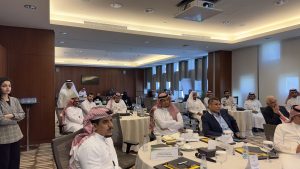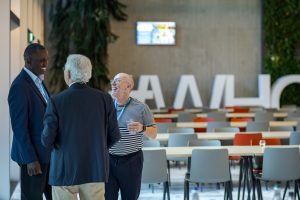 The WHO Collaborating Centre for Public Health Education and Training (WHOCC) had a busy few months supporting the World Health Organization (WHO) in its vital work towards improving public healthcare so that all people, everywhere, can have an equal chance at living a healthy life. In September, at the UN SDG Summit, a political declaration was made to realise a vision of a world with access to inclusive and equitable Universal Health Coverage (UHC). At the forefront of the WHOCC’s work is delivering and facilitating quality education and training in healthcare, crucial elements in achieving both UHC and SDG3.
The WHO Collaborating Centre for Public Health Education and Training (WHOCC) had a busy few months supporting the World Health Organization (WHO) in its vital work towards improving public healthcare so that all people, everywhere, can have an equal chance at living a healthy life. In September, at the UN SDG Summit, a political declaration was made to realise a vision of a world with access to inclusive and equitable Universal Health Coverage (UHC). At the forefront of the WHOCC’s work is delivering and facilitating quality education and training in healthcare, crucial elements in achieving both UHC and SDG3.
In this Autumn Update we recap the highlights from the past few months….

